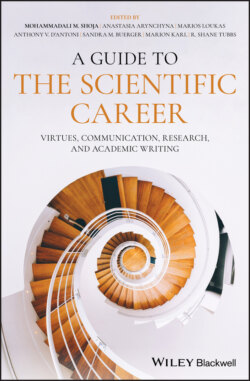Читать книгу A Guide to the Scientific Career - Группа авторов - Страница 82
7.4.1 Wisdom Is the Space Where Science and Religion Can Meet
ОглавлениеSince antiquity, wisdom has been understood as a psychological trait and has been examined in many humanities disciplines. In modern times, wisdom has been variously described as involving social attitudes or behaviors, pragmatic knowledge of life, emotional homeostasis, reflection or self‐understanding, value relativism and tolerance, and the acknowledgment of uncertainty with the ability to cope with it effectively. Although broadly defined, wisdom is consistently recognized as including thoughtful decision‐making, compassion, altruism, and insight (Meeks and Jeste 2009).
In ancient philosophy, wisdom was considered attainable in the context of practicing askezis, which implied exercises of self‐control, self‐discipline, self‐denial, and meditation guided by a mentor.
Many of the world's religions emphasize that adhering to a spiritual path increases emotional maturity. It brings hope of a transcendent wisdom that is accompanied by a heightened consciousness, a sense of inner silence, joy, gratitude, and morality. Both Western and Eastern religions teach that in order to develop wisdom, one needs to practice constraint, disciplined morality, charitable concern, and compassionate actions (Meeks and Jeste 2009).
According to Pavel Florensky (1882−1937), a Russian Orthodox theologian and thinker, wisdom is divine and is a direct representation of God's creative love. “Sophia is the original nature of creation, God's creative love… For everything exists truly only insofar as it communes with the God of Love, the Source of being and truth” (Florensky 1997). As a result of this act of love, wisdom is imprinted in each one of us, “in our hearts by the Holy Spirit who is given unto us” (Romans 5:5, New King James Version).
The art of medical research is to integrate science with wisdom for the benefit of patients. In a clinical setting, the purpose may not always be to cure, but to help the patient throughout the process, while instilling a realistic hope or peace in individual suffering. Very often, medical science cannot provide that hope to the patient. Therefore, medical disciplines serve a greater purpose: to understand the needs and sufferings of patients and address these problems through medical practice and research. We suggest that the training of practitioners and researchers needs to challenge the development of the Self as a prerequisite of developing the sensitivity to others.
